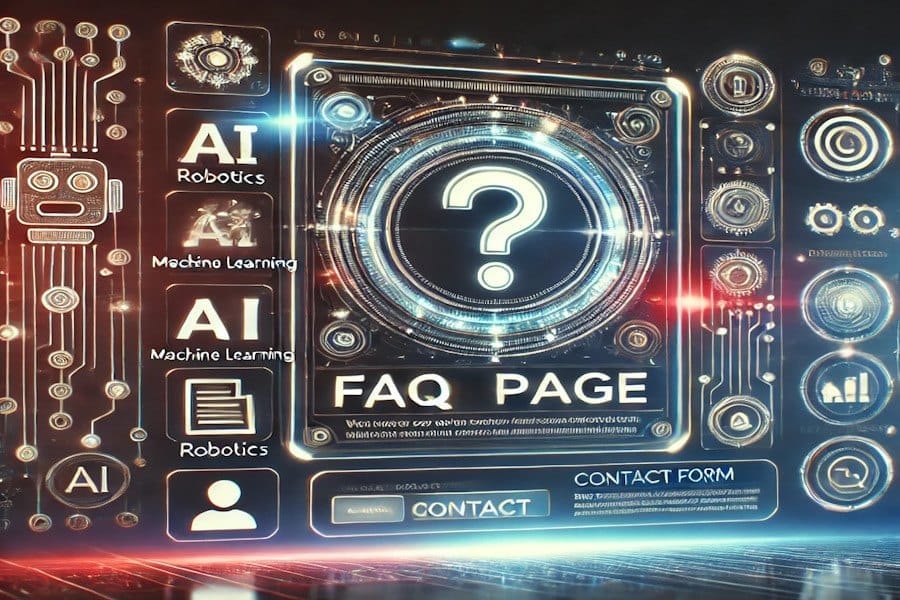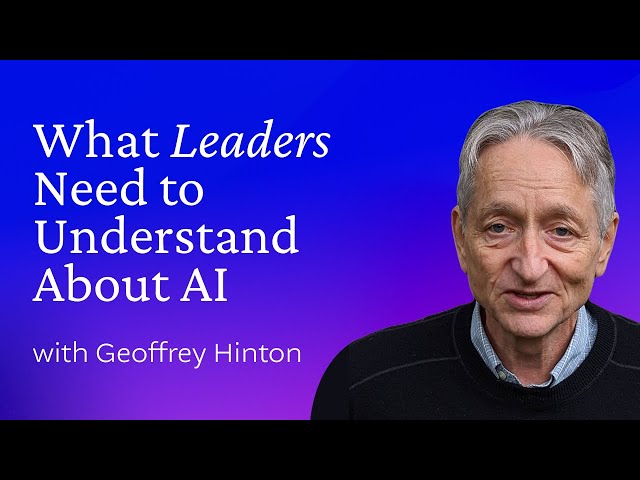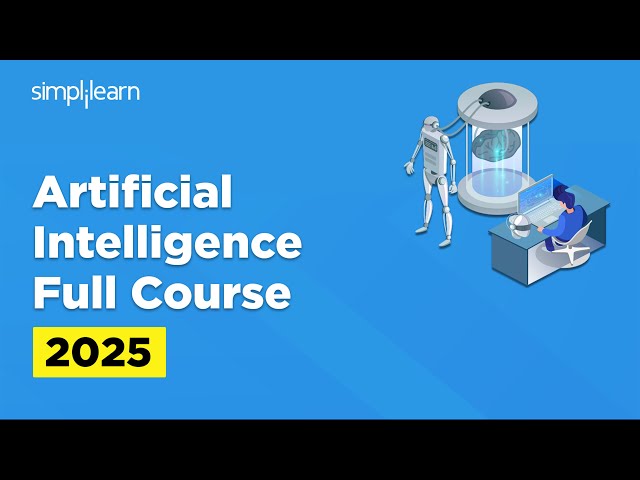AI FAQs
Your Ultimate Guide to Understanding Artificial Intelligence

Publish Date: Last Updated: 8th November 2025
Author: nick smith- With the help of GROK3
Welcome to the AI Frequently Asked Questions Page
Artificial Intelligence (AI) is transforming industries and redefining the way we live, work, and interact with technology. However, as powerful as AI is, it often raises questions and misconceptions. This page is your comprehensive guide to the most frequently asked questions about AI, covering everything from its basics to advanced concepts and real-world applications.
Checkout our AI cheat sheet to learn what AI terms mean.
If you don’t find the answers you’re looking for, feel free to ask us directly using the Contact Form at the bottom of this page.
Top AI FAQs
What is Artificial Intelligence?
Artificial Intelligence (AI) refers to computer systems or machines designed to perform tasks that typically require human intelligence, such as learning, reasoning, problem-solving, and decision-making. AI encompasses a range of technologies, including machine learning, neural networks, and natural language processing, enabling systems to analyze data, recognize patterns, and generate outputs. Recent advancements, such as multimodal AI models like GPT-4, allow AI to process diverse data types (text, images, audio) for applications like real-time translation and autonomous systems. AI can perform the following tasks:-
- Recognizing speech
- Solving problems
- Learning from experience
- Generating creative content
How Does AI Work?
Machine Learning (ML), a core subset of AI, enables systems to learn from data without explicit programming. ML algorithms are trained on large datasets to identify patterns and make predictions or decisions. The process involves:
- Data Input: Feeding historical or labeled data into the model (e.g., images labeled as "cat" or "dog").
- Training: The algorithm adjusts its parameters to minimize errors, often using techniques like supervised, unsupervised, or reinforcement learning.
- Prediction: The trained model generates outputs for new data.
Recent advancements include reinforcement learning for robotics and autonomous systems, and the use of large language models (LLMs) like BERT for natural language tasks. In 2025, ML is increasingly integrated with edge AI for real-time processing on devices like smartphones.
What Are the Types of AI?
AI is categorized into three main types based on capability:
- Narrow AI (Weak AI): Designed for specific tasks, such as image recognition or virtual assistants like Siri. Narrow AI excels in specialized domains but lacks general intelligence. Examples include recommendation algorithms and AI-powered chatbots.
- General AI (AGI): A theoretical AI capable of performing any intellectual task a human can do, adapting across domains. As of 2025, AGI remains a research goal, with no fully realized systems yet.
- Superintelligent AI: A hypothetical future AI surpassing human intelligence across all domains. Debates continue about its feasibility and ethical implications.
Additionally, Multimodal AI has emerged as a significant trend, enabling systems to process multiple data types (e.g., text, images, audio) for enhanced functionality, as seen in models like GPT-4 and DALL-E 3.
AI in Everyday Life
Where Is AI Used Today?
AI is ubiquitous, impacting various sectors such as:
- Healthcare: Diagnosing diseases, drug discovery, and patient management.
- Finance: Fraud detection, stock trading, and risk analysis.
- Retail: Personalized shopping experiences and inventory management.
- Entertainment: Recommendation systems for movies, music, and games.
- Transportation: Autonomous vehicles and traffic management.
How Is AI Different from Automation?
While automation performs repetitive tasks based on pre-programmed instructions, AI uses data and algorithms to make decisions, learn, and adapt to new situations.
Ethical and Practical Concerns About AI
Is AI Safe?
AI itself is safe when designed responsibly. However, concerns arise around:
- Bias: AI can inherit biases from its training data.
- Privacy: AI systems that handle sensitive data need robust security measures.
- Autonomy: Autonomous systems must be carefully regulated to avoid unintended consequences.
Will AI Take Over Jobs?
AI is expected to automate certain tasks, but it will also create new jobs in areas like AI development, data analysis, and AI system maintenance. Reskilling and adapting to new roles will be key to navigating this change.
What is the Environmental Impact of AI?
AI’s rapid growth raises concerns about its environmental footprint, particularly due to the energy-intensive nature of training large models. Data centers powering AI consume significant electricity, contributing to carbon emissions.
- Challenges: Training models like LLMs requires vast computational resources, with some estimates suggesting a single training run emits as much CO2 as a transatlantic flight.
- Solutions: Advances in energy-efficient AI, such as neuromorphic computing and data-efficient training, aim to reduce impact. AI is also used for energy optimization, like improving renewable energy grids.
Businesses are encouraged to adopt green AI practices and align with the UK’s net-zero goals by 2050.
How is AI Regulated in the UK?
The UK is a global leader in AI, with a focus on responsible development. The AI Playbook for the UK Government (2025) provides guidelines for public sector AI use, emphasizing lawful, ethical, and secure deployment. Key points include:
- Accountability: Public organizations must ensure AI outputs are accurate, non-discriminatory, and compliant with legal standards.
- Human Oversight: High-risk AI applications require human-in-the-loop processes.
- Infrastructure: The UK is investing £900m in supercomputers to support AI innovation, aiming to compete globally.
The AI Opportunities Action Plan (2025) outlines strategies to boost AI adoption while addressing risks, with legislation planned to regulate powerful AI models.
How Can AI Support Sustainable Business Practices?
AI is driving sustainability in businesses, particularly in the UK, where environmental targets like net-zero by 2050 are prioritized. Applications include:
- Eco-Friendly Packaging: AI optimizes supply chains and designs biodegradable packaging to meet regulations like the Plastic Packaging Tax.
- Energy Efficiency: AI enhances energy management in manufacturing and logistics.
- Data Analysis: AI provides insights into sustainable practices, helping businesses reduce waste.
Startups focusing on sustainable AI solutions can access UK grants and private investment to scale operations.
What Are the Latest Trends in AI for 2025?
As of 2025, AI continues to evolve rapidly. Key trends include:
- Multimodal AI: Models processing text, images, and audio for applications like real-time diagnostics and content creation.
- Edge AI: Running AI on devices like smartphones for faster, privacy-focused processing.
- Explainable AI: Enhancing transparency in AI decision-making to build trust and meet regulatory needs.
- AI for Sustainability: Using AI to optimize energy use and support net-zero goals.
- Agentic AI: Autonomous agents handling complex tasks in industries like healthcare and logistics.
Staying updated with these trends ensures businesses remain competitive in the AI-driven market.
Advanced Questions About AI
What Are the Limitations of AI?
- Lack of Creativity: AI generates ideas based on existing data but doesn’t possess true creativity or innovation.
- Data Dependency: AI requires vast amounts of high-quality data to function effectively.
- Interpretability: Understanding why AI systems make specific decisions can be challenging.
Can AI Learn on Its Own?
AI can improve through self-learning (unsupervised learning), but it still relies on human input for goal-setting and validation.
What Is the Future of AI?
The future of AI involves advancements in:
- Ethical AI: Building fair and transparent systems.
- Autonomous Systems: Smarter vehicles, drones, and robotics.
- Human-AI Collaboration: AI assisting humans in decision-making and creative tasks.
What Are AI Agents?
Original Content (Assumed): Describes AI agents as programs performing autonomous tasks.
Updated Content:
AI agents are software programs that autonomously perform tasks, make decisions, or respond to inputs based on programmed rules, data, and machine learning models. Types include:
- Reactive Agents: Respond to specific inputs, like chatbots.
- Deliberative Agents: Plan and reason, used in autonomous vehicles.
- Orchestrator Agents: Coordinate multiple AI systems, enhancing complex workflows.
In 2025, agentic AI, which mimics human-like decision-making, is advancing fields like customer service and logistics. Challenges include ensuring ethical decision-making and managing computational complexity.
What is AI Bias and How Does It Impact AI?
AI bias occurs when algorithms produce skewed or unfair outcomes due to biased training data, flawed design, or societal prejudices. Examples include facial recognition systems misidentifying certain demographics or hiring algorithms favoring specific groups.
- Impact: Bias can erode trust, perpetuate inequality, and lead to legal challenges.
- Mitigation: Use diverse datasets, implement regular audits, and involve human oversight.
In 2025, regulatory frameworks, like the UK’s AI Playbook, emphasize responsible AI use to address bias, with increased focus on explainable AI to enhance transparency.
Stay Updated
AI is constantly evolving, and so is our FAQ page. Bookmark this resource and check back regularly for new updates and answers to emerging questions.
YouTube Frequently asked questions on AI

What Leaders Need to Understand About AI with Nobel Laureate Geoffrey Hinton
YouTube Channel: Valence

🎬 "Top 3 Most Asked Questions About AI" #newstoon #Ai #world #global #shortsfeed
YouTube Channel: NewsToon

What Question Do CEO's Ask Most Often? #ai
YouTube Channel: NOHOLD Inc.

Artificial Intelligence Full Course | Artificial Intelligence Tutorial For Beginners | Simplilearn
YouTube Channel: Simplilearn
Ask Us Your AI Questions
Have a question about AI that isn’t covered here? Fill out the form below, and we’ll get back to you with detailed answers.


